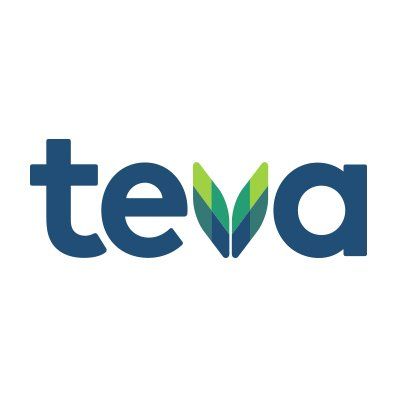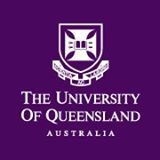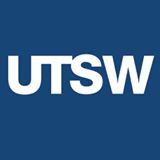预约演示
更新于:2025-05-07
Cerebral Palsy
脑瘫
更新于:2025-05-07
基本信息
别名 Athetoid Cerebral Palsy、Athetoid cerebral palsy、Athetoid cerebral palsy (disorder) + [148] |
简介 A heterogeneous group of nonprogressive motor disorders caused by chronic brain injuries that originate in the prenatal period, perinatal period, or first few years of life. The four major subtypes are spastic, athetoid, ataxic, and mixed cerebral palsy, with spastic forms being the most common. The motor disorder may range from difficulties with fine motor control to severe spasticity (see MUSCLE SPASTICITY) in all limbs. Spastic diplegia (Little disease) is the most common subtype, and is characterized by spasticity that is more prominent in the legs than in the arms. Pathologically, this condition may be associated with LEUKOMALACIA, PERIVENTRICULAR. (From Dev Med Child Neurol 1998 Aug;40(8):520-7) |
关联
41
项与 脑瘫 相关的药物靶点 |
作用机制 VMAT2抑制剂 |
最高研发阶段批准上市 |
首次获批国家/地区 美国 |
首次获批日期2017-04-11 |
靶点 |
作用机制 VMAT2抑制剂 |
最高研发阶段批准上市 |
首次获批国家/地区 美国 |
首次获批日期2017-04-03 |
2,490
项与 脑瘫 相关的临床试验ACTRN12624001244594
Impact of CP-KASP (Cerebral Palsy Knowledge, Advocacy Skills, and Support Program) on parenting stress, empowerment and efficacy, and quality of life in caregivers of children with cerebral palsy.
开始日期2026-07-01 |
申办/合作机构 |
NCT06239675
Concurrent Transcranial Direct Current Stimulation and Constraint-induced Movement Therapy in Children with Hemiplegic Cerebral Palsy: a Randomized Controlled Study on Efficacy and Brain Mechanisms
This study aims to test if transcranial direct current stimulation (tDCS) can be applied to boost the efficacy of constraint-induced movement therapy (CIMT) in children with HCP and examine brain mechanisms related to individual outcomes.
开始日期2026-01-01 |
NCT05018871
Safety of Cultured Autologous Adult Adipose Derived Mesenchymal Stem Cell Intravenous Infusion for the Treatment of Cerebral Palsy
This trial will study the safety and efficacy of intravenous infusion of cultured autologous adult adipose derived mesenchymal stem cells for the treatment of Cerebral Palsy
开始日期2025-12-01 |
申办/合作机构- |
100 项与 脑瘫 相关的临床结果
登录后查看更多信息
100 项与 脑瘫 相关的转化医学
登录后查看更多信息
0 项与 脑瘫 相关的专利(医药)
登录后查看更多信息
33,886
项与 脑瘫 相关的文献(医药)2025-12-31·Renal Failure
Dihydromyricetin protects against cisplatin-induced renal injury and mitochondria-mediated apoptosis via the EGFR/HSP27/STAT3 signaling pathway
Article
作者: Liu, Zhengye ; Ye, Weifeng ; Zhang, Gensheng ; Zhu, Runzhi ; Xu, Zheming ; Tao, Chang ; Chen, Zhenjie ; Lv, Zhisu ; Zhu, Bin ; Yan, Xiang ; Gong, Jianguang ; Han, Huirong ; Liu, Yang ; Zhang, Minjing ; Zhou, Suhan ; Zhang, Xue
2025-12-31·The Journal of Maternal-Fetal & Neonatal Medicine
Assessment of the clinical significance of a UGT1A1 gene variant in affecting phototherapy response and long-term outcomes in neonatal hyperbilirubinemia
Article
作者: Kang, Yingying ; Chang, Hesheng ; Wan, Xiaoman ; Yang, Xue ; Jiang, Yue ; Pei, Lin ; Fu, Shuai
2025-12-31·Annals of Medicine
Influence of oromotor functions on motor development and feeding outcomes in children with cerebral palsy
Article
作者: Aldhahi, Monira I. ; Mohamed Taha, Mona ; Ibrahim, Amira F. ; Khalaf, Mai M. ; Torad, Ahmed A. ; El-Sheikh, Amira F. ; Elsebahy, Sara Y.
325
项与 脑瘫 相关的新闻(医药)2025-04-23
·梅斯医学
27岁的小李(化名)身材清瘦、性格开朗,但过去四年,他反复出现“奇怪”的发作:剧烈运动后就会呕吐、腹泻,甚至昏迷不醒。第一次是在一次登山后,随之而来的还有高氨血症、代谢性酸中毒和心衰……经过抢救才转危为安。此后,小李的生活彻底变了。只要稍微一动多了,就可能出现恶心、无力、呕吐,甚至胸闷气短。多次就诊后,只能以“周围神经病”“高氨血症”来暂时解释症状,但病情始终反复。直到最近一次发作——轻微活动后突发胸闷、气短、心电图异常,心肌酶升高,再次住院。医生在进一步回顾病史、评估症状、并结合氨升高、神经病变、心肌损伤等表现后,终于高度怀疑并进行遗传代谢病相关检测,最终确诊为:迟发型丙酸血症。常染色体隐性遗传病丙酸血症(propionic acidemia,PA)是支链氨基酸和偶数链脂肪酸代谢异常的一种较常见的有机酸血症,为常染色体隐性遗传病,是由于丙酰CoA酶羧化酶活性缺乏,导致体内丙酸及其代谢产物前体异常蓄积,而出现一 系列生化异常、神经系统和其他脏器损害症状。不同地区有较大差异,为1/280 000~1/90 000,中国约为1/200 000。丙酸血症虽属于罕见病,但是有机酸血症中常见疾病,患者临床表现缺乏特异性,个体差异较大,可自新生儿到成年发病。临床表现丙酸血症可发生于新生儿至成年,分为早发型(≤3个月)和晚发型(>3个月),以早发型最常见。早发型多在出生后数天内出现代谢失代偿,表现为喂养困难、呕吐、嗜睡、低肌张力等,易误诊为围生期脑损伤等。若不及时治疗,易发展为昏迷甚至死亡,并遗留神经及多器官损害。晚发型常因感染、饥饿、手术等应激诱发,表现为代谢危象及认知障碍。部分患者起病隐匿,出现进食困难、智力运动发育迟缓、癫痫等症状。常见并发症包括脑基底核损伤、心肌病、血细胞减少、肝胰损害、视听障碍及骨质疏松。个别病例表现为肾损伤或孤立性心肌病,提示该病临床谱仍在扩展。诊断对于有脑发育异常、发育迟缓、癫痫、脑瘫、不明原因呕吐、昏迷、酸中毒、心肌病或有相关家族史的高危患儿,应警惕丙酸血症等代谢病,尽早进行血氨、血气、血糖、肝肾功能、心肌酶谱等基础检查,并结合特殊生化分析明确诊断。1. 新生儿筛查与生化分析:通过液相色谱-串联质谱(LC-MS/MS)检测血酯酰肉碱谱,典型患者表现为C3、C3/Co、C3/C2升高,游离肉碱(Co)和甘氨酸水平异常。由于可能存在假阳性或假阴性,应结合尿液有机酸谱(GC-MS)检查,若3-羟基丙酸、甲基枸橼酸、丙酰甘氨酸升高,且甲基丙二酸正常,可提示丙酸血症。2. 酶活性检测:可通过特定方法测定皮肤成纤维细胞或外周血淋巴细胞中的丙酰辅酶A羧化酶活性,辅助诊断。但因检测条件复杂,不适用于常规筛查。3. 基因分析:通过Sanger测序、靶向或全外显子测序检测PCCA或PCCB基因的致病突变可确诊。PCCA突变多为点突变(约80%),PCCB点突变比例更高(约97%)。若未发现双等位基因突变,需进一步做拷贝数变异分析(如qPCR、MLPA、array-CGH)以排除大段缺失或重复。治疗 急性期治疗:丙酸血症急性期治疗应以生命支持为核心,纠正酸中毒、电解质紊乱,限制蛋白摄入,积极补充热量(1.5倍基础需求),抑制分解代谢。使用左卡尼汀促进毒物排出,重度高氨血症时可用精氨酸类药物,必要时行透析。特殊配方奶粉应在短期内替代天然蛋白,但应在48小时内恢复部分天然蛋白摄入。 稳定期治疗与管理:饮食管理: 高热量、低蛋白饮食,补充特殊配方奶粉,天然蛋白摄入量随年龄调整。鼓励母乳喂养,避免饥饿,确保微量营养素摄入。药物治疗: 持续口服左卡尼汀维持正常水平;短期使用甲硝唑减少肠道丙酸产生;苯甲酸钠类药物降血氨;必要时使用生长激素。应密切监测代谢指标和生长发育情况,个体化管理。 肝移植与新治疗探索:对于反复发作、治疗效果差的患儿,肝移植可显著改善代谢控制和生活质量,提升蛋白耐受力。新兴疗法如酶替代、基因治疗、抗氧化剂及回补疗法仍在研究中,未来或为治疗提供更多选择。参考资料:1.单纯型甲基丙二酸尿症饮食治疗与营养管理专家共识 . 中国实用儿科杂志,2018,33(7):481-486.2. 高明,张强强,王欣阳,等. 成人迟发型丙酸血症合并心肌病1例. 中国临床案例成果数据库,2024,06(01):E2452-E2452.3.刘怡,杨艳玲. 丙酸血症的筛查、诊断与治疗. 中华实用儿科临床杂志,2019,34(20):1531-1534. DOI:10.3760/cma.j.issn.2095-428X.2019.20.003来源 | 梅斯医学编辑 | wanny神经系统罕见病交流群↓点击下方“阅读原文”,下载梅斯医学APP吧!
2025-04-22
AAV免疫学的奇妙案例「BioMedDaily」研究概述2025年3月28日,马萨诸塞大学chan医学院Horae 基因治疗中心高光坪(Guangping Gao)教授团队在Molecular Therapy期刊发表标题为“The curious case of AAV immunology”的综述论文,该综述主要探讨了腺相关病毒(AAV)免疫学的复杂性,包括AAV与宿主免疫系统的相互作用、临床应用中的免疫挑战以及未来研究方向。导读「BioMedDaily」重组腺相关病毒(rAAV)具有许多独特的特性,使其能够用于在体内向细胞传递遗传物质,因此成为治疗众多遗传性疾病的首选基因传递载体。然而,免疫系统将这些AAV载体视为外来物和潜在的病原体。由此产生的免疫反应引发了重大的安全性问题,对治疗性基因转导的持久性产生了负面影响,并且在需要时可能会阻碍重新给药。在研究AAV免疫学时,作者观察到许多令人惊讶的发现。此外,AAV基因治疗与自然感染免疫学存在巨大差异,不仅因为rAAV缺乏复制能力,还因为rAAV通过多种途径直接给药用于基因治疗,这些途径在自然感染中是不可用的,且给药滴度极高。所传递的DNA总量通常在每千克10¹⁷到10¹⁸个碱基之间,加上衣壳是一种外来蛋白,应该会激活免疫系统,这在其他病毒载体系统中也有观察到。然而,在实验动物中,先天免疫激活极为温和,最初使研究人员认为它相对无关紧要。然而,在人类受试者中,rAAV基因治疗引发了罕见但严重的与免疫反应相关的不良事件,但这些事件的精确原因并未总是被识别,也未能很好地在动物模型中重现。此外,尽管先天免疫激活极小,但针对载体的适应性反应却很强烈,这挑战了适应性免疫需要强烈先天信号的传统观点。在本综述中,作者描述了AAV与免疫系统相互作用的已知和未知内容,讨论了临床应用中当前面临的挑战,并提出了针对这种奇特病毒的未来研究方向。正文「BioMedDaily」1. rAAV、宿主细胞与免疫系统的相互作用尽管大多数病毒是作为疾病病原体被发现的,但腺相关病毒(AAV)最初是作为腺病毒(Ad)培养物中的污染物被发现的,这也是其名称的由来。AAV是一种直径为26纳米的细小病毒,其基因组为单链DNA(ssDNA)。AAV具有稳定且无包膜的衣壳,从多种脊椎动物的感染中已鉴定出数百种自然衣壳变体。AAV自身无法复制,需要其他病毒(如腺病毒或疱疹病毒)的帮助才能繁殖,这一特性使其成为基因传递的理想载体。AAV编码一个4.7 kb的ssDNA基因组,表达四个已知的开放阅读框,分别编码Rep、Cap、装配激活蛋白和膜相关辅助蛋白,这些基因被非编码的发夹状结构——反向末端重复序列(ITR)所包围。为了生成重组AAV(rAAV),所有编码基因被移除并替换为治疗基因,唯一保留的病毒成分是非编码的ITR。为了理解对AAV基因治疗的免疫反应,了解对野生型AAV(wtAAV)的免疫反应至关重要。AAV单独并未被鉴定为致病因子,其在腺病毒培养中的发现最初被认为是一种污染,因为它具有非致病性。然而,在其被发现后不久的几项研究中,发现AAV常与腺病毒引起的疾病爆发共同分离,尤其是在儿童中。最近,AAV2还与儿童急性肝炎的爆发有关,这种爆发是在与其他病毒(如腺病毒和疱疹病毒)共感染后发生的。宿主遗传因素被认为赋予了受影响个体的疾病易感性,但wtAAV的致病性仍不清楚。AAV感染在人类中广泛存在,针对自然衣壳变体的中和抗体(Nabs)在各种人群中普遍存在。这种由自然感染产生的预先存在的免疫反应可能会抑制基因治疗的疗效,因为Nabs会结合并抑制载体。因此,基因治疗的临床试验排除了对载体具有高水平抗体的患者,这在该领域中为使治疗对所有患者都可及造成了重大障碍。此外,针对AAV衣壳变体的T细胞反应也在自然wtAAV感染的健康个体中被检测到。然而,一项研究表明,患者中抗体与T细胞反应之间几乎没有相关性,一些患者只有中和抗体阳性或T细胞反应阳性,有些患者两者都有,尤其是对于AAV9,这一发现随后得到了类似结果的支持。总体而言,人类对wtAAV的暴露是普遍的,但由此产生的免疫反应尚未被证实会导致任何疾病,但尚未完全被理解。1.1 AAV如何被免疫系统识别?先天免疫系统是人体抵御病毒感染的第一道防线,提供快速、非特异性的反应,这对于控制病毒复制和在感染初期遏制其传播至关重要。相比之下,适应性免疫系统能够以抗原特异性的方式识别病毒,同时引发免疫记忆,这需要时间来对病原体产生针对性的反应。先天免疫系统依赖于种系编码的受体和机制,能够检测和响应多种病原体。AAV载体具有低免疫原性和无致病性,然而,对AAV载体的先天免疫反应仍然可以影响其疗效和安全性。这与其他病毒载体(如腺病毒或单纯疱疹病毒)的免疫原性形成对比,后者的先天免疫反应强烈,导致转导细胞被清除。然而,随着临床试验中载体剂量的不断增加,观察到对AAV的不良免疫反应增加,这可能是由于触发了先天免疫途径,同时激发了适应性免疫系统产生强烈反应。1.2 先天免疫反应病毒通过宿主的模式识别受体(PRRs)被识别,这些受体能够检测病原体相关分子模式(PAMPs)。这些PAMPs包括病毒核酸(如双链RNA、单链RNA、未甲基化的CpG DNA和双链DNA)以及病毒蛋白和其他结构成分。这些PAMPs被PRRs检测到,PRRs在抗原呈递细胞(APCs)上大量存在。许多研究表明,AAV能够被多种PRRs识别,包括Toll样受体(TLR)2、TLR9、cGas和RIG-I/MDA5(图1)。图1. AAV病毒颗粒中的免疫原性基序。TLR2通过识别衣壳蛋白来检测AAV,TLR9能够感知载体基因组中的未甲基化CpG基序,而cGAS-STING途径能够检测AAV基因组。TLR9、cGAS和RIG-I/MDA5激活宿主的干扰素(IFN)反应。TLRs通过接头蛋白(如MyD88和TRIF)发出信号,导致IRF3、IRF7和核因子(NF)-κB的激活,以及I型IFN和促炎细胞因子(如白细胞介素(IL)-6和肿瘤坏死因子(TNF))的产生。IFN反应能够激活自然杀伤(NK)细胞和其他先天免疫效应细胞,可能会降低转导效率。1.3 补体与AAV补体是AAV先天免疫反应的主要组成部分,可以通过三条主要途径激活:经典途径、替代途径和凝集素途径。经典途径和替代途径与基因治疗最为相关,因为它们在临床前和临床研究中均被证实与AAV诱导的补体激活有关。然而,凝集素途径也可能对AAV的宿主反应有所贡献,可能是因为AAV衣壳上丰富的甘露糖化N-糖链激活了凝集素途径,或者在内皮损伤后激活。经典途径、凝集素途径和替代途径均汇聚于C3转化酶,该酶能够裂解C3蛋白。经典途径通常由抗原-抗体复合物激活。此外,C1q与C反应蛋白(CRP)和五聚素-3(PTX-3)等多种靶标的结合也可以在抗体独立的方式下激活经典途径。替代途径可以通过C3的低水平自发水解,在没有识别分子(如抗体或凝集素)的情况下在异物表面沉积C3b。替代途径的一个显著特点是其正反馈环路:通过任何三条途径沉积的C3b可以与因子B结合;因子B随后被因子D裂解,形成替代途径C3转化酶(C3bBb);替代途径信号的增加进一步放大了C3的裂解,增加了C3b的沉积。通过与B细胞上的补体受体2(CR2)结合并促进CR2与B细胞受体复合物的交联,C3的C3d片段作为一种分子佐剂,降低了B细胞激活的阈值,对于最佳的抗体反应至关重要。因此,在缺乏补体蛋白CR1/2或C3的小鼠中,对AAV的体液免疫反应受到抑制。C3在AAV衣壳上的沉积增强了巨噬细胞对病毒颗粒的摄取,导致细胞因子(如IL-8、IL-1β和MIP)的产生增加。此外,高滴度的AAV中和抗体(Nabs)可以在人血中激活补体和其他先天免疫系统成分。利用链球菌蛋白G(IdeS)的免疫球蛋白G(IgG)降解酶或通过亲和层析柱色谱法耗尽IgG,已在体外证实了抗体在触发补体激活中的作用。然而,体内研究表明,抗体独立的机制可能通过替代途径参与对高剂量AAV载体的反应。在非人灵长类动物(NHPs)和仔猪中最初观察到高剂量毒性,包括血小板丢失,随后在NHPs和小鼠中的研究表明,补体激活在输注后3-4天达到峰值,这发生在IgG或IgM反应以及血小板减少症之前。一些临床试验的患者出现了提示补体激活和血小板减少症的临床表现。补体激活可能导致罕见且危及生命的血栓性微血管病(TMA)以及呕吐、急性肝衰竭和心脏及肾脏组织损伤(非典型溶血性尿毒症综合征[aHUS])。AAV诱导的补体激活已在其他地方进行了广泛综述,TMA/aHUS的临床结果将在下面的临床免疫毒性部分讨论。然而,总体而言,在临床试验中,即使在高剂量的AAV颗粒下,也并不常见到强烈的先天免疫反应。这与其他病毒载体形成对比,后者会强烈刺激先天免疫反应,这也是基于AAV的基因治疗在临床试验中取得成功的原因之一。1.4 适应性免疫反应尽管先天免疫反应水平较低,但针对野生型AAV(wtAAV)和重组AAV(rAAV)的强烈适应性免疫反应已被观察到。适应性免疫反应针对特定抗原产生免疫记忆,可通过AAV衣壳或rAAV的转基因诱导。AAV颗粒被细胞内化,并通过内吞作用运输到细胞核,在那里病毒被脱壳,其单链DNA(ssDNA)被转化为双链DNA(dsDNA)。然而,一些AAV衣壳在蛋白酶体中被消化,并被处理成主要组织相容性复合体(MHC)I类和II类抗原。适应性免疫反应大致可以分为两个分支:体液免疫,其中B细胞分泌抗体以中和病毒;细胞免疫,其中T细胞杀死病毒感染的细胞。AAV受体的HLA基因型可能在决定其适应性反应结果中起关键作用,这从COVID-19大流行期间发生AAV2相关非A-E型急性肝炎的儿童中HLA-DRB1*04:01等位基因的高富集度中得到证实。实验动物中存在多种MHC分子,但近交系可能具有更有限的单倍型库。人类和动物模型之间MHC组成的差异可能会影响适应性反应的有效建模。1.5 针对衣壳的抗体反应在AAV给药后,一些AAV会进入淋巴系统,作为抗原激活适应性免疫,如先前所示,AAV衣壳和DNA可在脾脏的生发中心中找到。在生发中心,具有识别AAV衣壳表位倾向的B细胞被激活,发生体细胞高频突变和增殖,借助CD4+滤泡辅助T细胞(图1)。一些B细胞成为浆母细胞,向循环系统释放大量抗体。中和抗体(Nabs)可以进一步阻止AAV进入靶细胞,将其标记为吞噬作用,并激活经典补体途径。其他B细胞成为记忆细胞,保留对AAV的免疫记忆。自然暴露于野生型AAV会导致Nabs的产生,许多针对一种AAV血清型的Nabs与其他衣壳变体具有高度交叉反应性,这是由于AAV衣壳之间序列同源性高。如果患者预先存在对载体衣壳有反应的Nabs,可能会降低基因治疗的疗效。最近一项研究分析了六种衣壳变体的全球Nab血清流行率,发现AAV1在成人和儿童患者中的流行率最高。然而,其他研究对来自10个国家的样本进行筛查发现AAV2 Nabs最为普遍,其次是AAV1。这些研究发现AAV5的流行率最低,但另一项针对成年血友病患者的研究发现AAV5的血清流行率相对较高。总体而言,自然发生病毒的血清阳性率在不同人群中均有发现,许多针对AAV的Nabs在这些人群中普遍存在,但尚不清楚这些抗体如何影响基因治疗载体。一项研究评估了Nabs和结合抗体(Babs),发现它们之间存在正相关,但衣壳特异性Nabs的血清流行率高于Babs,这意味着大多数有Nabs的人也有Babs,但有些人可能只有一种。Nabs在阻断转基因表达中的作用已在动物研究中得到充分模拟,并在患者中观察到,而Babs的作用尚不清楚。一项研究在AAV给药前将AAV载体与Nabs或Babs共同孵育,或用Nabs或Babs免疫小鼠,发现载体在Nab或Bab挑战后都能进入细胞,但Nabs能够阻断转基因表达,而Babs则不能。细胞内IgG受体TRIM21可能在将抗体结合的病毒靶向蛋白酶体方面发挥作用,但在AAV背景下这一可能性尚待研究。这些抗体的存在是持久的,因为高滴度的Nabs在AAV基因治疗多年后仍可检测到,一项针对血友病B的研究发现,对输送的AAV2衣壳以及对AAV5和AAV8具有交叉反应性的高Nabs在治疗后15年仍然存在。血清阳性状态可能会排除患者参加临床试验,和/或使试验中的患者重新给药无效。针对AAV的Nabs的主要亚类是IgG1,其次是IgG2和IgM。IgM和IgG似乎都能阻止AAV进入细胞,这限制了重新给药策略。该领域的一个主要障碍是抗体检测方法缺乏标准化,因此在不同的试验中以不同的方式评估抗体,并使用不同的值来确定阳性结果。这使得比较反应变得困难,而且如果每个产品都需要自己的伴随诊断,这也是获得批准的一个障碍。用于确定患者临床环境中抗体滴度的检测方法分为两大类,即总抗体结合(TAb)检测法,用于检测Babs,以及转导抑制(TI)检测法,用于检测Nabs。然而,依赖活细胞培养、测试病毒的批间差异以及测试病毒转基因的差异使得TI检测法更难标准化,并且难以在不同的临床研究中进行比较。使用更敏感的转基因减少了TI和TAb检测法之间的差异。进一步的研究已开展,以利用冷冻电镜或肽段扫描来识别与抗体相互作用的AAV衣壳区域。在AAV衣壳上已鉴定出某些结构域区域或“抗原热点”,包括二十面体的3倍轴、5倍轴和2/5倍壁。最近一项研究显示,约76%的Zolgensma患者的抗体针对2倍对称轴,表明该区域对AAV9具有抗原优势。在本研究中测试的来自四名Zolgensma患者的21种抗体均为中和性抗体,其中大多数特异性针对AAV9,尽管有些与其他衣壳具有交叉反应性,并且更有可能结合5倍对称轴。减少AAV9衣壳上的抗原热点是开发免疫逃逸策略的一个潜在有影响的领域。值得注意的是,这些映射可能来自高亲和力抗体,而低亲和力抗体的抗原区域仍有待解决。1.6 针对衣壳的T细胞反应在首次临床表现之前,临床前动物模型中几乎没有针对AAV的T细胞特异性免疫反应的证据。这至少部分归因于AAV基因治疗诱导的先天反应缺乏。T细胞反应的产生是当抗原在MHC I类上呈递细胞内蛋白或在MHC II类上呈递细胞外蛋白时,分别导致CD8和CD4 T细胞反应的产生。然而,抗原的交叉呈递可以发生,细胞外抗原可以由MHC I类呈递,研究表明AAV递送会导致浆细胞样树突状细胞(DCs)、传统DCs和CD4+细胞的组合,这可以通过交叉呈递激活针对AAV衣壳的CD8+ T细胞。细胞介导的T细胞反应最初是在一项针对血友病的AAV2临床试验中观察到的,报告了转基因表达的丧失和肝转氨酶的升高。在随后使用AAV8的血友病临床试验中,接受2×10¹² vg/kg的患者观察到类似的结果,但使用类固醇治疗部分挽救了转基因表达,而接受6×10¹¹ vg/kg的患者通过ELISpot检测到针对衣壳的T细胞反应,但没有转基因表达的丧失或转氨酶升高。进一步的研究进一步支持了针对衣壳的T细胞反应呈剂量依赖性,但可以通过类固醇治疗进行控制。然而,并非所有的T细胞反应都阻碍了基因治疗的积极结果。在几项针对肌肉的临床试验中观察到诱导了称为调节性T细胞(Tregs)的特殊T细胞,这些细胞诱导了耐受性,并允许长期稳定的转基因表达。在针对α₁-抗胰蛋白酶(AAT)的临床试验中,在活检样本中观察到即使在注射后5年,患者的细胞浸润仍然持续存在,但这种细胞群含有针对衣壳的FoxP3 T细胞。在一项针对肌肉的非人灵长类动物研究中,也发现了类似的长期表达。尽管最初观察到了针对转基因的免疫反应,但这种反应只是短暂的,转基因的再表达虽然在较低水平,但在注射后5年内被观察到,这被认为是由Tregs介导的。1.7 针对转基因的抗体和T细胞反应与慢病毒或腺病毒等其他载体相比,AAV诱导的转基因免疫反应要低得多,这可能是因为AAV对APCs的转导效率低,无法激活先天免疫反应。然而,与针对衣壳的免疫反应类似,针对AAV递送的转基因的免疫反应也可以产生。针对转基因产生的抗体通常被称为抗药物抗体(ADAs)。在患有遗传性疾病的患者中,这些抗体更有可能产生,这些患者的受影响基因存在无效突变,导致没有内源性蛋白表达,或者如果递送的转基因不是内源性蛋白序列,例如“迷你”或“微型”序列,其中部分转基因被移除以产生新的表位。在两种情况下,都没有建立免疫耐受。错义突变通常更容易被耐受,但仍然可能发生免疫反应。在具有不太常见的HLA单倍型的患者中,发现一种常见的非致病性AAT多态性会导致针对突变AAT蛋白的免疫反应。值得注意的是,自互补AAV(scAAV)载体比单链AAV(ssAAV)诱导了更强的针对转基因的抗体反应和CD8+ T细胞反应,这可能是由于scAAV比ssAAV更强地表达了转基因产物,以及诱导了先天免疫。在庞贝病中,该病是由编码α-葡萄糖苷酶(GAA)的基因发生突变引起的,缺乏任何残留GAA的患者被称为交叉反应免疫物质(CRIM)阴性。这些患者通常会在酶替代疗法和AAV基因治疗中产生高滴度的抗GAA抗体或ADAs,因为存在一种没有耐受性的治疗蛋白。在血友病、肾上腺脑白质营养不良和肌肉营养不良等其他疾病中也观察到了类似的免疫反应,这些疾病的患者在致病基因中存在大片段缺失或无效突变。针对转基因的T细胞反应在几项针对杜氏肌营养不良症(DMD)的AAV临床试验中被观察到。由于肌营养不良蛋白基因包含79个外显子,其cDNA超过11 kb,因此它太大,无法装入单个AAV衣壳中。因此,研究人员设计了一种缩短版的基因,称为“微型肌营养不良蛋白”,该基因具有功能性,但省略了许多外显子,以适应AAV的包装能力。虽然大多数患者在没有强烈针对转基因的T细胞免疫的情况下表达微型肌营养不良蛋白,但一些患者可能会出现T细胞介导的针对转基因的免疫介导肌炎(IMM),特别是在那些在微型肌营养不良蛋白cDNA中存在的肌营养不良蛋白基因大片段缺失的患者中,这些患者还具有特定的HLAs。DMD患者肌肉组织中的促炎环境也可能有助于免疫系统对AAV衣壳的反应。因此,在评估基因治疗的免疫反应时,应考虑疾病对生理的影响,特别是对于促炎性疾病。2. rAAV引发的免疫反应带来的临床挑战针对衣壳和转基因的免疫反应限制了重新给药的能力,而重新给药是维持治疗基因表达的一种策略。然而,情况并非总是如此简单,即更强的免疫反应会导致转基因表达减少。特别是T细胞反应的双重性令人困惑,因为T细胞反应既可以清除转基因表达,也可以促进其持续存在。这种双重性在同一个研究小组最近的两份报告中得到了很好的体现,这些报告评估了许多影响免疫系统对AAV基因治疗反应的因素。其中一些因素,如给药途径和AAV衣壳的选择/设计,可以在临床前模型中轻松模拟。然而,其他因素,如疾病表型、HLA状态、免疫抑制方案以及共感染等混杂因素,在临床前模型中很难考虑。此外,年龄和性别也被发现在眼部治疗的小鼠模型中调节对基因治疗的免疫反应。更好地理解T细胞反应对于实现耐受性将有助于持续的临床成功。2.1 降低AAV免疫原性的策略为了降低AAV的免疫原性,可以采用多种策略,包括对AAV衣壳或其基因货物进行工程改造,以减少与先天和适应性免疫反应的相互作用。2.2 基因货物提高转基因表达可以减少需要输送的载体剂量,从而降低免疫反应。研究人员还研究了使用高活性的AAV转基因变体来减少载体剂量,但这些变体也可能产生新的B细胞和T细胞识别的表位。通过机制如aptazyme核糖开关或药物诱导的剪接来控制基因表达,也可能减少毒性。许多策略被用来提高转基因表达,包括密码子优化。然而,如上所述,密码子优化可能会增加免疫反应,因为它通常会增加CpG基序,从而增强TLR9的激活。然而,从AAV构建物中去除CpG二核苷酸已被证明可以促进稳定的转基因表达,并减少细胞浸润。但很难完全去除所有CpG,尤其是考虑到AAV包装所需的ITR通常含有高CpG含量。然而,一项研究生成了功能性无CpG的ITR,尽管使用它们时载体产量有所下降。另一种减轻TLR9信号的方法是在AAV基因组中加入TLR9抑制序列,这可以阻断宿主DNA传感器。这种策略已在小鼠和猪中被证明可以减少免疫反应,并允许成功重新给药。进一步的修饰可以通过阻断3′-ITR的转录来减少免疫反应,这会产生ssRNA和dsRNA,作为细胞内RIG-I和MDA5的识别基序。使用微RNA靶向技术阻断APCs中的转基因表达已被成功证明可以限制适应性免疫反应。2.3 衣壳衣壳工程被提出作为一种替代方法,以克服免疫系统的挑战。对常见Nab识别位点的衣壳表面进行改造,可以提高转导效率。大多数在基因治疗后被鉴定出来的人类抗体都显示出AAV9沿2倍对称轴的抗原区域,这与小鼠抗体所显示的不同。因此,基于小鼠抗体结合区域设计AAV衣壳可能无法转化为人类。许多组织特异性的AAV衣壳被提出用于更有效的组织靶向和细胞进入,以提高转基因的表达。AAV衣壳表面的酪氨酸残基突变已被测试,以减少磷酸化和泛素化,这会导致衣壳降解和表位作为抗原的呈递。这些酪氨酸残基的突变增强了转基因表达,同时减少了抗原呈递和T细胞毒性。通过点击化学将N-乙酰半乳糖胺配体结合到AAV衣壳的酪氨酸上,可以在不改变衣壳的情况下减少与Nabs的相互作用,同时增强肝脏和视网膜的靶向性。此外,PEG化和聚合物包被也被提出用于避免抗体中和。外泌体包裹的AAV的创造允许改变AAV衣壳的趋向性,使其能够在Nabs存在的情况下转导细胞,并诱导耐受性。外泌体-AAV递送载体甚至可能允许在体内对淋巴细胞进行工程改造。3. 给药途径在免疫反应中的作用AAV载体的不同给药途径会导致不同的免疫反应,原因多种多样(图2)。直接注射到某些特定组织隔室,如眼睛或中枢神经系统(CNS),会因缺乏血清成分、存在屏障组织以及独特的免疫环境而产生不同的免疫反应。而其他途径,如系统性给药,则面临额外的障碍。一项体内研究使用RNA原位杂交发现,在静脉注射后2-24小时内,AAV DNA被限制在间质空间,表明细胞外基质可能是系统性给药的屏障。然而,在注射后5天,AAV DNA已进入大多数组织的细胞核,且在脾脏和淋巴结中观察到的AAV DNA大多位于B细胞丰富的区域。所有这些因素都在AAV的免疫反应中发挥作用。图2. AAV载体基因治疗的免疫反应因给药途径而异。3.1 眼部在美国,首个获批的基因疗法Luxturna是针对RPE65基因突变相关的视网膜营养不良设计的。眼睛是基因治疗的理想靶点,因为它只需要相对较少的载体,并且是一个受保护的免疫环境。在初次视网膜下注射后产生的针对AAV的抗体,并未阻止对侧眼的重新给药。然而,在视网膜下注射后,局部眼部炎症对AAV的反应已被观察到,但并未诱导全身耐受性。尽管一些眼部基因治疗试验报告称免疫反应较少,缺乏T细胞反应,但其他试验报告了局部和全身免疫反应,这被称为基因治疗相关性葡萄膜炎(GTAU)。玻璃体腔注射被认为比视网膜下途径更具免疫原性,因为载体可能进入血液并接触到淋巴组织。眼睛中有几种免疫细胞作为APCs,包括驻留的类似巨噬细胞的小胶质细胞和周血管巨噬细胞。眼睛表达许多PRR基因,包括各种TLRs和cGAS。然而,几个独特的免疫学因素影响眼部免疫反应,包括免疫抑制微环境和物理的血-组织屏障。眼部对AAV基因治疗的免疫反应已在其他地方进行了广泛综述。3.2 中枢神经系统针对中枢神经系统(CNS)的给药途径可以是直接的,例如将载体注射到CNS隔室中,也可以是更广泛的,例如系统性给药,使用经过改造能够转导CNS组织的载体。后一种方法被用于Zolgensma,用于治疗脊髓性肌肉萎缩症(SMA)的神经元。AAV9能够穿过血脑屏障(BBB)的发现是CNS基因递送的一个重要突破。CNS独特的免疫环境使其成为早期基因治疗的一个有吸引力的目标。尽管CNS最初被认为具有“免疫特权”,但最近的研究表明,CNS和免疫系统之间存在着独特的关系。BBB阻止抗体进入CNS,这使得即使在循环系统中存在针对它们的中和抗体(Nabs),也可以直接将病毒载体注射到CNS中。然而,AAV给药到CNS会导致血清和CNS中的抗体滴度增加,以及CNS中的细胞浸润。3.3 肌肉内注射在CNS和眼睛中,预先存在的Nabs对基因治疗载体的影响最小。然而,Nabs对肌肉直接给药的基因治疗载体的影响则更难以捉摸。几项试验表明,预先存在的Nabs的存在并不是直接肌肉内注射的重大障碍。在AAV2血友病B试验、AAV1治疗脂蛋白脂肪酶缺乏症(LPLD)的试验以及AAV1肢带型肌营养不良(LGMD)试验中,尽管一些患者存在阳性Nab滴度,但仍有成功的转基因表达。此外,尽管一些患者对AAV有交叉反应性的Nab滴度,但仍有四名曾在AAV2试验中接受治疗的患者在随后的试验中接受了AAV1的直接肌肉内注射。然而,对于肌肉适应症的静脉给药,由于预先存在的Nabs的限制,患者被排除在临床试验之外。在肌肉靶向基因治疗后的几项临床试验中观察到了额外的T细胞反应。在一项直接肌肉内注射试验中,检测到了针对衣壳的调节性T细胞(Tregs)反应,并认为这些反应有助于长期稳定的转基因表达。然而,在采用系统性给药治疗杜氏肌营养不良症(DMD)的临床试验中,观察到了强烈的针对转基因的T细胞反应。3.4 系统性/肝脏在动物模型中,AAV对肝脏的靶向已被证明在小鼠、狗和非人灵长类动物(NHPs)模型中具有耐受性,并且已被用于在更多免疫组织中诱导耐受性。此外,在肝脏移植领域,肝脏异体移植已被耐受,这可能为基因治疗领域的免疫耐受性提供一些启示。肝脏的特定环境中,许多因素共同作用,包括库普弗细胞(肝脏中较不成熟的驻留巨噬细胞)、IL-10的分泌以及肝脏窦状内皮细胞诱导调节性T细胞(Tregs)的生成。大约30%的严重血友病A患者会产生针对凝血因子VIII(FVIII)的抗体,这些抗体可能通过定期给予治疗性FVIII来耐受。在基因治疗前没有FVIII抑制剂的患者被选入试验,但来自狗的证据表明,肝脏靶向的AAV-FVIII能够诱导对FVIII的耐受性。目前正在评估诱导耐受性的可能性,其中一名接受治疗的血友病A患者取得了成功。然而,耐受性并不总是能在人类临床试验中转化为更好的结果,系统性给药的载体通常会导致短暂的转基因表达,与肝酶升高和通过ELISpots检测到的阳性衣壳特异性T细胞反应相关,这需要使用皮质类固醇进行免疫抑制。但免疫抑制使得血友病试验中的转基因表达在数年内保持稳定,并导致美国食品药品监督管理局(FDA)批准了三种基因疗法:Roctavian、Hemgenix和BEQVEZ。3.5 耳部内耳基因递送最近取得了巨大成功,开辟了一个令人兴奋的治疗新领域。内耳是一个独特的环境,它是一个解剖学上孤立的部位,并且有一个紧密调节的血-迷路屏障,形成了一个与循环系统分离的内耳微环境。然而,内耳中存在白细胞,特别是巨噬细胞,表明有一个活跃的免疫系统。尽管如此,对内耳AAV基因治疗的免疫反应的研究还相对较少,但一些研究提供了见解。在新生小鼠内耳的圆窗注射AAV载体产生了低水平的中和抗体(Nabs),表明这种途径可能防止适应性免疫反应。然而,在后半规管给药后,也有报道在小鼠中观察到细胞浸润和巨噬细胞积聚,以及在非人灵长类动物(NHPs)的圆窗膜给药后也观察到了类似现象。需要更多的研究来充分理解内耳基因治疗后对AAV的免疫反应。4. rAAV引发的免疫反应导致的免疫毒性免疫毒性在注射后数天内以及给药后1年均有观察到,早期反应在基因治疗后数天到数周内更多地与先天免疫系统相关,而治疗后数周到数月内发生的事件更多地与适应性免疫系统相关(图3)。图3. AAV治疗后免疫反应和免疫毒性的时间轴。4.1 先天免疫反应导致的免疫毒性AAV给药后不久出现的免疫毒性包括补体激活、血小板丢失和细胞因子升高,这些可能导致补体介导的血栓性微血管病(TMA)和一种非典型溶血性尿毒症综合征(aHUS)。TMA的特征是血小板减少、微血管病性溶血性贫血以及不同程度的终末器官损伤,但凝血酶原和活化部分凝血活酶时间正常。TMA可能是原发性的(遗传性或获得性),也可能是继发于其他疾病过程,如感染(包括Shiga毒素相关HUS)、恶性高血压、自身免疫性疾病、恶性肿瘤和药物。原发性遗传性TMA包括由ADAMTS13(一种含有血栓性血小板减少性紫癜的13号成员)缺乏引起的血栓性血小板减少性紫癜(TTP),以及由补体抑制剂的功能丧失突变或补体激活剂的功能获得突变引起的过度或不受抑制的补体激活导致的aHUS,以及其他罕见疾病,如钴胺素C(cblC)缺乏和DGKE(二酰基甘油ε)或INF2(倒置formin 2)基因的突变。针对ADAMTS13或补体抑制因子H的抗体可能导致获得性TTP或aHUS,分别是原发性TMA的获得性原因。TMA的一个标志是内皮细胞损伤,由补体C5b-9的膜攻击复合体引起。最近的一项研究表明,在携带补体C3功能获得突变的小鼠中阻断C7可以防止动物死于疾病,这再次强调了C5b-9在触发内皮细胞损伤中的关键作用,这对于该疾病的发病机制至关重要。因此,预防过度的补体激活和C5b-9的生成可能会缓解这种不良反应。尽管TMA/aHUS最初仅在用于治疗杜氏肌营养不良症(DMD)的AAV9试验中被观察到,但此后在涉及不同AAV衣壳和不同疾病的儿童和成人患者的试验中均有报告,但所有这些不良事件的报告都与通过静脉给药的相对高剂量载体有关。然而,与AAV8或AAVrh74相比,AAV9试验中报告的TMA病例要多得多,即使在相同的DMD疾病背景和相似剂量下也是如此。TMA病例现在被认为与六种不同的临床产品有关,这些产品用于治疗五种不同的疾病。除了高剂量外,反复感染或近期接种疫苗的报告在已知病例中也很常见。最近的一项研究评估了使用利妥昔单抗和西罗莫司进行免疫调节以减少抗抗体产生的效果,报告了成功的免疫预防,以防止不希望的免疫反应。然而,需要注意的是,不同AAV剂量组中纳入的患者数量不同,这可能会对观察到的结果产生重大影响。此外,还有几种抗补体疗法正在评估中,包括阻断C5激活的单克隆抗体eculizumab及其长效衍生物ravulizumab、C1抑制剂疗法以及抑制C3和C3b的肽。接受基因治疗的患者还接受了多种辅助治疗,包括血浆置换、糖皮质激素、eculizumab、抗高血压药、利尿剂、血小板和红细胞输注。大多数患者的TMA病例已得到解决,但至少有一例死亡报告。该患者作为补体因子I(CFI)基因(补体的抑制剂)的一个未知意义的变异携带者,可能具有潜在的易感性,再次强调了患者的遗传背景如何可能影响免疫反应和结果。基因治疗试验中的TMA病例已在其他地方进行了广泛综述。此外,还有在AAV给药后不久报告的其他死亡病例,包括一名DMD患者因内皮细胞损伤导致严重的弥漫性肺泡损伤和急性呼吸窘迫综合征,以及在一项针对Rett综合征的临床试验中,一名患者在接受3×10¹⁵ vg AAV载体通过鞘内途径给药后2周死亡,这是该给药途径的首例死亡病例。该患者出现了全身性高炎症综合征,其特征是异常的细胞因子释放、噬血细胞性淋巴组织细胞增多症和多系统炎症综合征。需要进一步调查以充分了解影响基因治疗的安全性、耐受性和持久性的因素。4.2 适应性免疫反应导致的免疫毒性在AAV给药后数周至数年,还观察到了其他免疫毒性。如上所述,针对衣壳的T细胞反应或针对转基因的免疫反应导致了临床毒性。这些通常与针对衣壳或转基因的T细胞反应相关,并与肝转氨酶(丙氨酸转氨酶[ALT]和天门冬氨酸转氨酶[AST])升高或其他组织炎症有关。在最初的血友病试验之后,肝毒性还在几种临床试验中被观察到,包括脊髓性肌肉萎缩症(SMA)和X连锁肌管性肌病(XLMTM)的治疗中。对接受Zolgensma治疗的SMA患者的上市后监测揭示了肝毒性以及心脏事件和神经节病变。诺华公司报告了两例儿科患者因开始减少泼尼松龙剂量后发生急性肝衰竭而死亡。然而,迄今为止已有超过3700名患者接受了Zolgensma治疗,美国食品药品监督管理局(FDA)报告称肝毒性很常见,大约发生在三分之一的患者中,但通过泼尼松龙治疗可以解决。使用表达SMN1转基因的更接近生理水平的启动子在小鼠模型中显示出比Zolgensma更好的安全性和有效性。肝毒性还与XLMTM临床试验中患者的死亡有关。然而,对那些经历严重治疗相关肝胆不良事件的患者进行评估并未表明这些事件是由免疫反应引起的,而且似乎免疫调节治疗没有任何益处,这导致了对XLMTM和肝胆疾病的自然史的重新审视。4.3 心肌炎心肌炎在两项针对杜氏肌营养不良症(DMD)治疗的临床试验中被观察到。患者通常在AAV给药后1个月内出现肌钙蛋白增加、心室壁增厚和更多的炎症细胞浸润。在辉瑞公司的AAV9试验中有两名患者和在Sarepta公司的AAVrh74试验中有一名患者在给药后3-6周出现心肌炎,导致辉瑞试验中一名患者死亡。这些患者还出现了严重的肌炎,导致肢体以及球部和呼吸肌无力,所有三名患者都需要呼吸支持,尽管在恢复的两名患者中是短暂的。在DMD临床试验中还观察到了其他与抗转基因免疫反应相关的免疫介导肌炎(IMM)病例。DMD患者的炎症表型可能会进一步加剧对AAV载体的免疫反应。两名XLMTM患者出现了可能的心肌炎,并接受了类固醇和西罗莫司治疗,同时还接受了麦考酚酸酯和静脉注射免疫球蛋白治疗。在这两名患者中,心肌炎在4个月和10个月后分别得到解决。心肌炎还在针对庞贝病和TNFRII-Fc治疗的非人灵长类动物模型中被观察到。4.4 背根神经节毒性在一项使用AAV9通过鞘内注射递送针对SOD1的微RNA的肌萎缩侧索硬化症(ALS)临床试验中,观察到一名患者出现了背根神经节(DRG)毒性。在该患者中,神经系统症状和疼痛综合征以及磁共振成像扫描表明DRG毒性与基因治疗后4周出现的针对衣壳的T细胞相似。在增加免疫抑制后症状得到缓解,研究中的第二名患者接受了更积极的免疫抑制,并未出现DRG毒性的迹象。在非人灵长类动物研究中,DRG毒性被注意到与B细胞和T细胞浸润相关的神经元损伤,但毒性并未被免疫抑制所抑制。进一步在非人灵长类动物中利用微RNA靶点降低神经元中转基因表达的研究表明,DRG毒性是由转基因的直接毒性引起的,而不是免疫反应。其他研究表明,非蛋白质编码的RNAi构建物可能导致DRG毒性。因此,免疫反应在DRG毒性中的作用存在争议,仍有待澄清。5. 缓解免疫毒性相关不良反应的管理方案为了调节对AAV基因治疗的免疫反应,临床和临床前都采取了多种策略。目前还没有针对AAV基因治疗的标准免疫抑制方案,但在设计适当的免疫抑制策略时会考虑多个因素,例如给药途径和载体剂量。5.1 当前策略目前在临床上用于AAV基因治疗的最常见免疫调节药物是皮质类固醇,如甲泼尼龙、泼尼松和泼尼松龙。在皮质类固醇治疗后观察到促炎细胞因子和趋化因子的减少以及肝毒性降低。皮质类固醇治疗可以解决基因治疗后出现的肝转氨酶水平升高。皮质类固醇的剂量和给药时间可以有所不同,但通常以1-2 mg/kg的剂量给药4-133天,然后逐渐减量以使患者逐渐停止治疗。然而,一些患者在治疗初期或因出现临床症状而被给予高剂量的皮质类固醇。皮质类固醇可以单独使用,也可以与其他免疫抑制剂如雷帕霉素(mTOR抑制剂)或钙调磷酸酶抑制剂(如他克莫司)联合使用。他克莫司已被证明可以抑制调节性T细胞(Tregs)的增殖或功能,而雷帕霉素已被证明有助于诱导耐受性。一种三联免疫抑制方案已使用皮质类固醇、雷帕霉素和利妥昔单抗的组合来抑制B细胞和T细胞反应,已被证明可以有效调节对载体的免疫反应。麦考酚酸酯,它抑制B细胞和T细胞的增殖,以及环孢素,它抑制T细胞的增殖和激活,也已在AAV临床试验中使用。此外,还测试了限制补体激活的药物。Eculizumab用于通过阻断C5激活和MAC形成来对抗补体过度激活,并已在多项临床试验中进行测试。Ravulizumab是一种长效的下一代单克隆抗体C5抑制剂,用于治疗aHUS。一种C3抑制肽APL-9已被证明可以减少补体激活。Pegcetacoplan(APL-2或Empaveli)是另一种C3抑制剂,它靶向并阻断C3激活,这是所有三条补体途径的汇聚点。5.2 实验性药物/临床前发现由于高剂量基因治疗可能会引发更多的免疫和炎症反应,因此在提高AAV效率方面取得了重大创新,以减少需要输送以实现转基因治疗表达的剂量。在视网膜下空间与AAV共注射时,使用羟氯喹啉已被证明可以提高病毒效率,从而提高转基因表达。AAV衣壳在MHC中的呈递依赖于内体逃逸,因此抑制转导细胞中的蛋白酶体处理是一种被考虑的策略。然而,需要考虑安全性和有效性,因为蛋白酶体抑制剂可能对不同靶组织或与某些衣壳变体一起使用时产生不同的结果。这可能会给患者带来并发症,因为已报告临床批准的蛋白酶体抑制剂硼替佐米有严重的副作用。为了克服预先存在的免疫反应和重新给药,已经确定了许多其他靶点以靶向抗体形成。一种被提出的策略是使用空载体作为诱饵以阻断抗体反应。然而,空载体仍然可以触发CD8 T细胞反应并清除转导的细胞。血浆置换可用于从血液中清除抗体,但需要多轮才能清除针对AAV的高滴度中和抗体。其他方法可以清除AAV特异性抗体或特定的同种型。使用血浆置换与针对AAV2和AAV5的AAV抗体的免疫吸附相结合的策略,能够在数次治疗后将中和抗体滴度降低到1:5以下。进一步的生理盐水冲洗与直接注入非人灵长类动物门静脉的直接注射或一种不太侵入性的球囊导管引导注射也被发现可以最小化AAV中和抗体的影响。还可以利用细菌衍生的酶来清除抗体。由化脓性链球菌产生的Imlifidase(IdeS)和由马链球菌亚种 zooepidemicus产生的IdeZ可以裂解IgG,并已在AAV研究中用于降解中和抗体。此外,IgM裂解酶(IceM)的发现导致了一种融合酶的工程化,该酶对IgM和IgG都具有双重功能(IceMG),已被证明可以减轻抗体中和和补体激活。此外,由于新生儿Fc受体(FcRn)在IgG的半衰期中起着重要作用,使用FcRn抑制剂能够减少小鼠和非人灵长类动物中预先存在的中和抗体。重新给药可能在某些患者群体中是必要的,特别是在新生儿和儿童中,随着个体的成长,载体稀释或丢失更有可能发生。尽管上述策略可能有助于重新给药,但接受基因治疗的患者具有高滴度的中和抗体,可能难以克服,因此可能需要在首次给药后阻断AAV衣壳抗体的形成策略。使用利妥昔单抗(一种抗CD20抗体)进行B细胞耗竭已在多项临床试验中用于减少AAV抗体形成。在经过标准利妥昔单抗治疗的类风湿关节炎患者中也实现了中和抗体滴度的降低,但在1-2剂后,少于一半的受试者抗体滴度降至1:5以下。还提出了其他双重靶向方法,包括联合单克隆疗法靶向CD20和B细胞激活因子(BAFF),以允许在小鼠中重新给药。利妥昔单抗和环孢素A(一种钙调磷酸酶抑制剂)的进一步联合使用允许在非人灵长类动物模型中成功重新给药。雷帕霉素和伊布替尼(Bruton酪氨酸激酶抑制剂)的联合使用也已进行测试,这抑制了回忆反应并减少了循环浆细胞的数量,但未能降低记忆形成并允许成功重新给药。还进行了其他B细胞靶向策略,包括阻断CD28/B7和CD40/CD40L。在一种表面活性蛋白-B(SP-B)缺乏的小鼠模型中成功实现了重新给药,其中AAV6.2FF衣壳被输送到肺部多达五次,与未经治疗的动物仅存活5天或在单剂量后存活134天相比,中位生存期增加到296天。只有接受含有TLR9抑制性寡核苷酸序列的载体的动物才受益于重新给药,这表明这种益处依赖于抑制先天免疫反应。MyD88信号已被确定在B细胞反应和抗体产生中发挥重要作用,并且使用CRISPR-CAS9抑制其表达暂时导致血清中抗体减少并能够成功重新给药。通过使用ImmTOR(一种含有雷帕霉素的纳米颗粒)诱导调节性T细胞(Tregs)已被证明可以在与AAV共同给药时成功重新给药,已在多种动物疾病模型中证明,如肝内胆汁淤积症3型、甲基丙二酸血症和Crigler-Najjar综合征1型。ImmTOR进一步与B细胞靶向剂结合,如针对BAFF的抗体和伊布替尼,对减少抗AAV IgM和IgG抗体具有协同作用,并允许四次连续AAV给药。ImmTOR还在一项健康志愿者接受空载体衣壳的人类临床试验中进行了进一步评估。在接受ImmTOR治疗的患者中观察到针对衣壳的T细胞反应减少和延迟。5.3 通过调节性T细胞诱导耐受性在临床试验中,诱导耐受性也与稳定的转基因表达相关。几种基因治疗策略已被尝试诱导Tregs,包括在AAV衣壳上添加Treg诱导表位,称为Tregitopes,这能够扩大Treg群体同时抑制CD8 T细胞。Tregitopes还被探索作为AAV货物,用于诱导针对溃疡性结肠炎的耐受性疗法。此外,而不是诱导Tregs,一个小组输送了多克隆扩增的Treg群体或针对AAV衣壳的工程化嵌合抗原T细胞受体(CAR)Tregs,并表明AAV CAR Tregs可以在AAV基因治疗后抑制针对衣壳和转基因的免疫反应。其他研究利用针对转基因免疫反应的CAR Tregs用于血友病A或重新编程的抗原特异性细胞。在血友病A小鼠模型中测试了T细胞受体(TCR)融合构建物(TRuC)Tregs,并发现其比CAR Tregs更有效地抑制ADA形成。通过将B细胞抗体受体(BARs)转导到Tregs中,也在Tregs的背景下评估了BARs,这在耐受化血友病A ADA发育方面取得了成功。结论AAV有时被称为“几乎不是一种病毒”,因为它不具备许多病毒的常见特性。在临床应用中给予的高病毒载量的先天免疫反应令人惊讶地温和,但足以强烈激活适应性免疫反应。然而,随着临床试验中载体剂量的增加,与AAV基因治疗相关的免疫毒性也在增加,显然有一个被认为是安全的极限。限制这些观察到的免疫毒性将是rAAV基因治疗未来发展的一个关键挑战,并且正在为此目的开发几种策略。最终需要多个学科之间的协作努力来设计安全和高效的基因治疗,包括更好地理解病毒生物学、介导病毒-宿主相互作用的分子机制以及宿主免疫反应。本综述讨论了AAV免疫学研究的现状,以加强基因治疗科学家和临床医生之间的理解。这有望促进新的研究方向,例如短暂的宿主免疫调节,以提高细胞特异性靶向效率,减少需要输送以实现疗效的剂量,并减轻免疫毒性。关于派真生物
基因疗法临床研究
2025-04-18
·药智网
近日,中国生物制药宣布其自主研发的潜在“First-in-class”镇痛新药TRD205正式启动临床2期研究。作为全球首个针对慢性术后神经痛并进入Ⅱ期临床阶段的1类创新药,该成果不仅标志着非阿片类镇痛药研发的重大突破,更有望重塑全球疼痛管理市场格局。1机制创新TRD205的核心靶点是血管紧张素Ⅱ型2受体(AT2R)。研究发现,外周神经损伤后,AT2R被异常激活,通过诱导巨噬细胞释放活性氧/氮,引发背根神经节(DRG)感觉神经元钙内流,最终加剧痛觉敏化。作为高选择性AT2R拮抗剂,TRD205可精准阻断这一通路,从源头抑制疼痛信号传导,避免了传统阿片类药物对中枢神经系统的干扰,显著降低成瘾及呼吸抑制等风险。这款具有全球首创潜力的新药已在中美两地获批临床,目前在中国展开临床2期研究,并在1期临床研究中表现出良好的安全性和药代动力学特征:2023年9月,向美国FDA提交IND申请并获受理,临床前数据证实其在神经痛、炎症痛及癌痛模型中的显著镇痛效果。2023年12月:中美双报成功,获NMPA和FDA批准开展1期试验,安全性初步验证。2025年4月:开启中国2期临床试验,重点评估对慢性术后神经痛患者的疗效及安全性。当前开展的2期研究采用多中心、随机、双盲、安慰剂平行对照设计,将进一步评价TRD205用于治疗慢性术后神经痛的有效性和安全性。这项研究计划纳入184名受试者,通过低、中、高剂量组探索最优给药方案,治疗持续6周,受试者每日接受1次TRD205片(200mg/片)或者安慰剂治疗。主要研究终点包括第6周的NRS疼痛评分周平均值较基线的变化。次要终点指标次要终点指标是第6周的NRS疼痛评分周平均值较基线下降≥50%、≥30%的受试者比例。作为靶向AT2R受体的新型拮抗剂,除了术后慢性疼痛,TRD205拟在痛性糖尿病周围神经病、带状疱疹后遗神经痛、三叉神经痛等适应症开展临床试验,构建多维度镇痛管线。2千亿市场的缺口慢性术后神经痛(CPSP)是术后持续3个月以上的疼痛综合征,全球每年3.2亿手术患者中,约10%受此困扰,已成为严峻的公共卫生问题。公开数据显示,2021年全球疼痛管理市场规模达794亿美元,预计2027年增至1207亿美元,年复合增长率7.39%。中国市场2019年规模为970.81亿元,2024年Q1同比增长7.22%,展现出强劲需求。然而,当前临床治疗面临显著瓶颈:阿片类药物虽为主要用药,却因恶心呕吐、呼吸抑制、成瘾性等副作用,更有甚者可能诱发更高风险的抑郁症,并且仅25%患者能获得满意疗效;非甾体抗炎药(NSAIDs)和抗抑郁药对神经病理性疼痛效果有限。在此背景下,靶向AT2R的非阿片类新药TRD205开辟了全新路径——其通过抑制外周巨噬细胞介导的痛觉敏化通路,既能有效缓解疼痛,又规避了中枢神经系统风险,高度契合全球“去阿片化”政策导向。值得注意的是,目前全球尚无AT2R靶点药物上市,针对神经痛适应症的AT2R靶向药物研发仍处早期。中国生物制药的TRD205率先进入临床2期研究,成为全球首个针对慢性术后神经痛并进入2期临床阶段的创新药。传统药物对神经病理性疼痛疗效有限,TRD205拥有全新的分子结构,在多种周围神经病理性疼痛模型中显示出具有镇痛效果,能够有效缓解神经病理性疼痛、炎症痛和癌痛。2023年,礼来宣布与Confo Therapeutics达成协议,以最高6.3亿美元的总金额获得后者临床在研药物AT2R抑制剂CFTX-1554及其他同靶点候选抗体的开发权益,该AT2R抑制剂CFTX-1554目前位于临床1期。若TRD205进展顺利能够获批上市,将填补神经痛治疗领域的空白,凭借“First-in-class”机制和多适应症布局,快速渗透传统疗法效果欠佳的细分市场,抢占超百亿美元的市场先机。3中国生物制药的「镇痛布局」中国生物制药将镇痛列为四大核心治疗领域之一,2024年该领域收入达44.58亿元,占集团收入15.4%,较去年同期收入同比增加18.9%。中国生物制药子公司泰德制药是国内透皮贴剂的龙头企业,拥有氟比洛芬酯注射液(凯纷)、氟比洛芬凝胶贴膏(得百安)、利多卡因凝胶贴膏(凯立通)和洛索洛芬钠凝胶贴膏(得舒平)等重磅产品。明星产品氟比洛芬凝胶贴膏是国产首个非甾体炎性痛外用凝胶贴膏剂,长期占据市场主导地位。2025年新获批的洛索洛芬钠凝胶贴膏则打破了国内市场长期被独家垄断的局面,与氟比洛芬凝胶贴膏、利多卡因凝胶贴膏共同构成全管线覆盖,涵盖骨关节炎、肌肉痛、神经病理性疼痛等多类适应症。在研产品方面,中国生物制药聚焦创新机制与新型给药途径,拥有超10个在研项目,包括6款创新药(2款处于上市申请阶段)及8款生物类似药/仿制药。预计外科/镇痛领域未来三年(2025-2027年)将有4个创新药和8个生物类似药或仿制药获批上市。在研管线涵盖小分子、生物制剂及透皮制剂等多元化方向。例如,针对神经病理性疼痛的新型透皮贴剂、靶向特定疼痛通路的小分子药物等,形成了从局部到全身、从急性到慢性疼痛的全周期治疗方案。针对术后镇痛这一临床痛点,中国生物制药通过引进与自研双轮驱动布局长效镇痛药物。2025年3月与清普生物合作引进的QP001是国内唯一注册分类为国家2类新药的美洛昔康注射液,作为选择性COX-2抑制剂,其半衰期长达18-22小时,可实现24小时持续镇痛,显著降低骨科和腹部手术后患者的吗啡使用量(分别减少56.3%和46.0%)。目前该药物已在中国和美国申报上市,预计将于近期获中国国家药品监督管理局批准上市,有望成为中国首款一日一次的长效镇痛NSAIDs注射液。已上市的氟比洛芬酯注射液(凯纷)作为经典术后镇痛药物,与QP001形成产品梯队,巩固了中国生物制药在外科/镇痛领域的优势地位。4结语TRD205片的2期启动,不仅是中国生物制药研发实力的集中体现,更标志着全球镇痛治疗从“阿片依赖”向“精准靶向”的历史性跨越。若临床数据优异,其将为全球数亿患者提供全新选择。随着国际合作深化与临床数据积累,这款中国企业研发的First-in-class新药,有望成为创新药出海的标杆,在千亿级疼痛管理市场中书写本土药企的突破篇章。参考资料:1.各公司官网2.药智数据3.《千亿镇痛市场,新机制药物即将登场》,贝壳社声明:本内容仅用作医药行业信息传播,为作者独立观点,不代表药智网立场。如需转载,请务必注明文章作者和来源。对本文有异议或投诉,请联系maxuelian@yaozh.com。责任编辑 | 史蒂文合作、投稿、转载开白 | 马老师 18323856316(同微信) 阅读原文,是受欢迎的文章哦
临床申请临床2期临床1期临床结果
分析
对领域进行一次全面的分析。
登录
或

生物医药百科问答
全新生物医药AI Agent 覆盖科研全链路,让突破性发现快人一步
立即开始免费试用!
智慧芽新药情报库是智慧芽专为生命科学人士构建的基于AI的创新药情报平台,助您全方位提升您的研发与决策效率。
立即开始数据试用!
智慧芽新药库数据也通过智慧芽数据服务平台,以API或者数据包形式对外开放,助您更加充分利用智慧芽新药情报信息。
生物序列数据库
生物药研发创新
免费使用
化学结构数据库
小分子化药研发创新
免费使用




